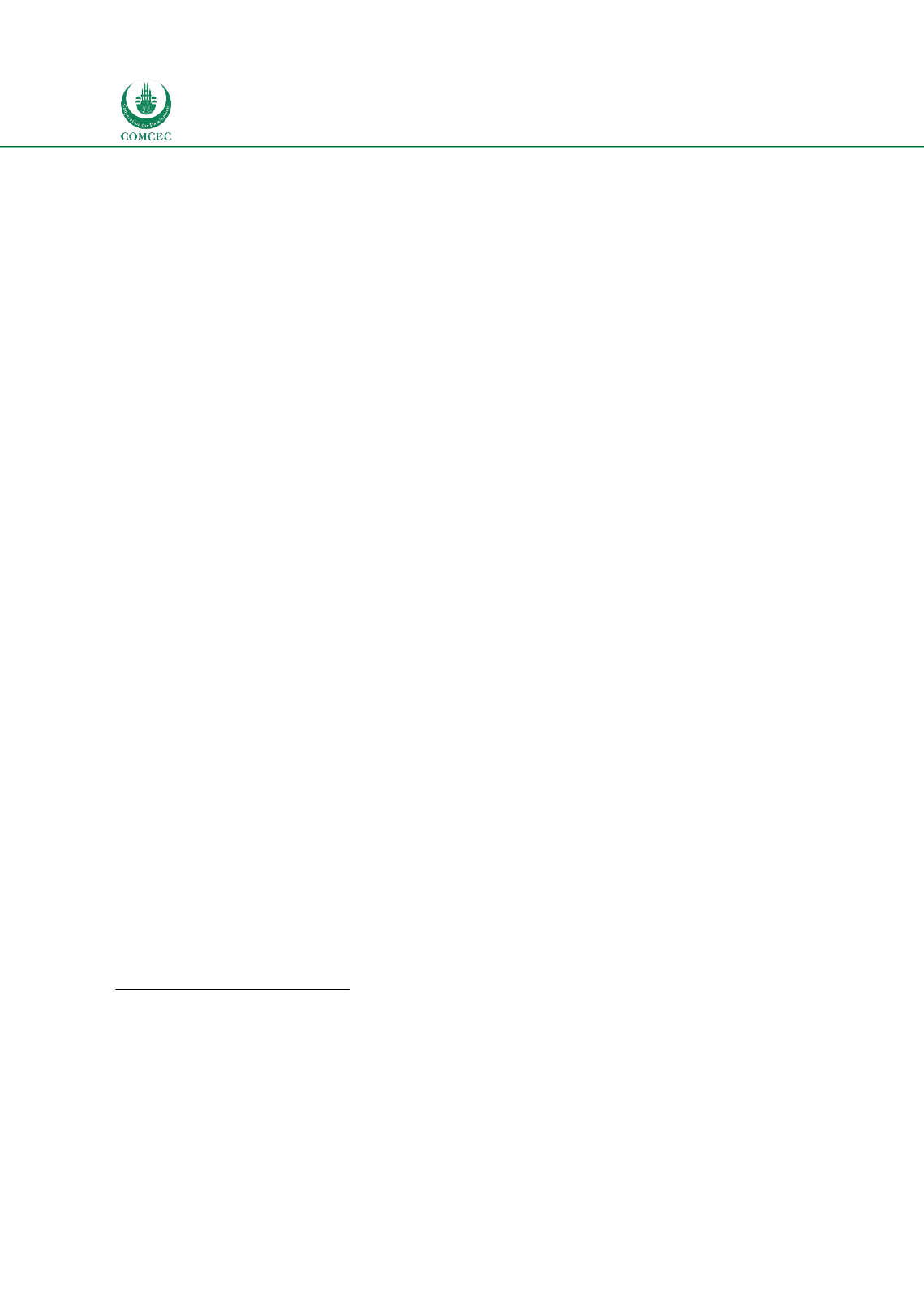

National and Global Islamic Financial Architecture:
Problems and Possible Solutions for the OIC Member Countries
62
The Guidelines do not address all aspects of the Shariah and require Islamic banks to follow the
Shariah rules set by their respective Shariah Supervisory Committee as well as those of the
AAOIFI. The banks are required to disclose, among others, the types of Islamic deposits, the
class of Shariah contracts used (such as Murabaha, ijarah, Mudaraba, salam, istisna'a etc),
obligations to zakat payments, and income derived from Shariah non-compliant activities.
Islamic banks are also required to include Shariah Committee Reports as a part of their Annual
Reports, and the regulatory guidelines provide the minimum disclosure that should be
included in the report.
Overall, the Guidelines on accounting issues provide the minimum disclosure
requirements on Shariah related issues that should be followed by the Islamic banks. As a
result a lot of information may be absent which is vital for fair disclosure. In the
Bangladesh context, despite the requirement to comply with the BFRS, three Islamic banks
have voluntarily opted to comply with both BFRS and AAOIFI FAS.
22
Rating Agencies
Bangladesh Bank has 8 ratings agencies licensed by the Bangladesh Securities & Exchange
Commission (BSEC). In case banks have an international exposure they can also use the ratings
of the international rating agencies such as Fitch, Moody and Standard & Poor. Islamic banking
branches and windows of the conventional commercial banks are rated on the same basis as
their conventional counterparts. Bangladesh Bank issued a guideline on the External credit
rating under the "Implementation of Basel III in Bangladesh" on 21 December 2014 (BB 2014).
The methodology of the rating is stated as 'The capital requirement for credit risk is based on
the risk assessment made by External Credit Assessment Institutions (ECAIs) recognized by BB
for capital adequacy purposes". While the conventional Rating Agencies rate the Islamic banks
in Bangladesh, there has been no sukuk introduced to date in the country. Of the eight ratings
agencies, one (Emerging Credit Rating) has introduced ratings specifically for Islamic financial
institutions.
23
4.1.6. Consumer Protection Architecture
Consumer Protection and Financial Literacy
The Consumer Rights Protection Act, 2009 (Act No. 26 of 2009) (GOB 2009) was enacted in the
country to provide for the protection of the rights of consumers, prevention of anti-
consumer rights practices and for the purpose of making provisions for matters connected
therewith. Bangladesh Bank has taken steps to enhance Consumer Protection and Financial
Literacy. The second Strategic Plan 2015-2019 of Bangladesh Bank (BB 2015b) also recognizes
empowering consumers by protecting and educating consumers to be one of the key enablers
of the development of the financial sector in the country. To make its financial inclusion
initiatives fruitful and comprehensive, BB has strengthened the consumer empowerment
22
Al-Arafah Islamic Bank Limited stated in their financial statements that BAS/BFRS were applied 'to the extent that these do not
contradict with the applicable statutory provisions and standards issued by the AAOIFI'. Islami Bank Bangladesh Limited stated in
the annual balance sheet that 'its consolidated and separate financial statements had been prepared in accordance with the
Bangladesh Bank Circulars, IFRS adopted as BFRS, securities law, exchange regulations and standards issued by AAOIFI, as a
member of that organization'. Shahjalal Islami Bank's notes on the basis of preparation mentioned that, ' ...the financial statements
have been prepared in accordance with the 'First Schedule (Sec-38) of the Bank Companies Act 1991 ... and ... Bangladesh
Accounting Standards (BAS) and Bangladesh Financial Reporting Standard (BFRS), Standards issued by the AAOIFI and other
related laws and rules applicable in Bangladesh' (AOSSG 2010).
23
Emerging Credit Rating Limited, Bangladesh. Web:
www.emergingrating.com















